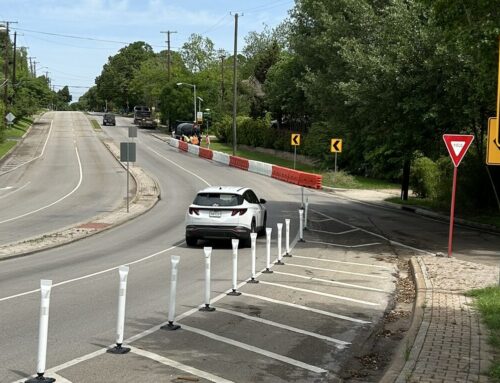Should Dallas students be allowed to "text" on their cellphones — during class?
When this question was raised by a high school principal during a recent high school advisory committee meeting, I scoffed not-so-silently, thinking it was a rhetorical question with an obvious answer: No.
After all, there’s a reason you aren’t supposed to text while driving: Texting takes mental acuity, and if you’re focused on your cell phone, you’re not going to be focused on driving. Well, the point of school is to focus on learning, and students texting each other and whoever else while a teacher is teaching aren’t going to be giving that lesson their full attention. Right?
So obviously, texting shouldn’t be allowed during classtime. Right? Well, read on…
A few weeks ago, the DISD school board passed a new rule (look on the March 26 agenda, item 56, second pdf on the right-hand tab) prohibiting the use of cell phones and pagers/beepers during the "instructional day" at elementary schools, but the rule allows middle and high school students to bring cellphones to school, as long as "such devices shall not be visible and shall remain off during the instructional school day."
There was one big stipulation added to the rule, though: Individual campuses, "working in conjunction with the Site-Based Decision-Making Committee (SBDM), Parent Teacher Association (PTA), campus and district-level administrative staff, have the option to ban cellular phones from the campus."
At the meeting I attended, the principal seemed to be thinking along these lines, because it appeared she raised the issue to generate discussion, and maybe support, for a possible ban of cell phones inside the school. Period. No cell phones, which would pretty much preclude kids from texting, too, and hopefully put the focus back on learning.
But before I could even open my mouth in support, what seemed like the rest of the parents spoke as one: You can’t take cell phones away from the kids!
One said cell phones are essential for student safety. One said the only way to get in touch with a kid who forgets something, or to remind a kid of an appointment, is to text him/her during school hours. One said kids are pretty good at multitasking, so a student could probably text and listen/learn, all at the same time.
No one, however, argued that texting during class was doing anything to help kids learn.
A teacher mentioned she tried to take a student’s cell phone away during class after the student disobeyed the teacher’s "request" to put it away, and the student refused. So the teacher had to stop teaching, call the office and request help, which apparently didn’t arrive in time — the whole incident diminished her classroom authority, was disruptive to the learning environment and, for all we know, was probably recorded on 20 cell phones for infinite playback.
Another teacher mentioned collecting cell phones in a box before class and then letting kids pick them up afterwards; yet another teacher pointed out that the collection process could make the teacher liable if a student initiated a "sticky finger" upgrade to his cell phone on the way out of class. All this leads me to believe that cell phones are causing a big problem in DISD schools, and left to deal with this on their own, teachers probably will have to ignore kids texting away simply to retain control of the classroom.
I suspect this isn’t just a DISD problem, either; any school with kids and cell phones is bound to be dealing with this. And as a parent, it’s fine with me if DISD wants to ban cell phones in schools,and I’ll do my part to make sure my kids’ phones stay at home or in their car.
I can’t speak for the rest of the parents and kids, but based on what I saw at the advisory board meeting, Charlton Heston’s famous National Rifle Association pledge spring to mind … "from my cold, dead hands."





